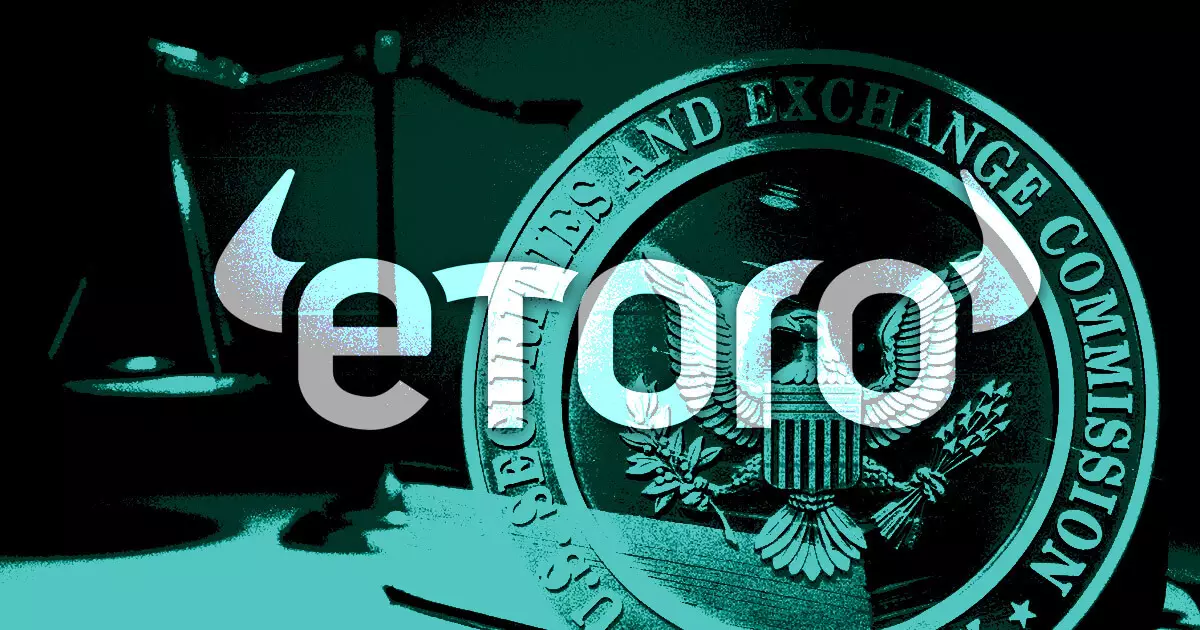In a decisive move highlighting the increasing scrutiny of the cryptocurrency industry, eToro has announced significant changes to its trading offerings. Following a settlement with the U.S. Securities and Exchange Commission (SEC) involving a financial agreement of $1.5 million, the platform is set to restrict its crypto trading options. This decision comes after it was revealed that since 2020, eToro facilitated the trading of digital assets categorized as securities for U.S. customers while neglecting to meet the necessary federal registration requirements. This development represents a critical intersection of technology, investment, and regulation, emphasizing the necessity for compliance in an evolving marketplace.
Although eToro has not officially acknowledged the SEC’s allegations, it has agreed to limit its crypto offerings to a select few assets—namely Bitcoin, Bitcoin Cash, and Ethereum. As part of the settlement, the platform is required to completely liquidate all other digital assets within a designated timeframe of 180 days. This resolution not only underscores the SEC’s intent to enforce its regulatory mechanisms but also serves as a cautionary tale for other crypto firms navigating a similar landscape. Gurbir S. Grewal, the SEC’s Director of Enforcement, articulated the importance of this action by pointing out how it enhances overall investor protection while allowing eToro to align its operations with existing regulatory structures.
eToro is not alone in facing these regulatory challenges; the SEC has directed its attention toward multiple cryptocurrency exchanges and platforms, including prominent names such as Binance, Kraken, and even established entities like Coinbase. The ramifications of these actions reflect a broader regulatory crackdown that could reshape the landscape of cryptocurrency trading in the United States. The possibility of future legal actions against firms like Robinhood and OpenSea signifies that the SEC is intent on establishing a robust regulatory framework that ensures compliance and protects investors in this nascent industry.
Guy Assia, the co-founder and CEO of eToro, underscored a positive outlook following the settlement, asserting that it enables the company to pivot its focus toward delivering innovative solutions while abiding by regulatory standards. He stressed the importance of compliance and the collaborative relationship eToro seeks with global regulators, expressing optimism about a future regulatory framework for crypto assets in the U.S. that mirrors what has already been established in the UK and Europe.
For users of eToro, the implications of this settlement are tangible. Customers will have the option to either close their cryptocurrency positions or relocate supported coins to the eToro wallet before the deadline of March 11, 2025. After this point, any remaining positions that are not part of the approved assets will automatically be liquidated, with proceeds credited to the respective cash balances of users’ investment accounts. This structured transition reflects eToro’s intention to manage client assets responsibly while adhering to new regulatory expectations.
EToro’s decision to restrict its cryptocurrency offerings is a significant step in the ongoing relationship between cryptocurrency firms and regulators. While this presents challenges, it simultaneously opens the door for potential future growth as the regulatory landscape evolves.

